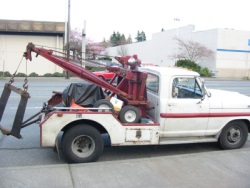 By Lauren Williams, legal blogger for The Law Office of Randolph H. Wolf
By Lauren Williams, legal blogger for The Law Office of Randolph H. Wolf
Recent high profile DUI cases in Washington State have led lawmakers to propose some of the harshest and unprecedented DUI penalties in the country. Governor Jay Inslee and a group of legislators from both parties have proposed a plan that would result in charges being filed more quickly and jail sentences being lengthened.
One aspect of the plan even seeks to prevent offenders from buying alcohol. The governor touted the law as “the most aggressive, the most effective, the most ambitious” change to state DUI laws ever. The cost to tax payers was not provided, but the governor said that the cost would not be insignificant.
The governor’s plan would require that those arrested for DUI be charged within two days (instead of weeks or months, which is common practice in some jurisdictions). The plan would also require people charged with drunk driving to have an ignition interlock device installed on their vehicle before it could be returned, a restriction that seems to disregard the notion of “innocent until proven guilty.”
Proposed Penalties for people with Multiple DUI Convictions
The law would also require a six-month minimum jail sentence for a second DUI conviction and a one-year minimum sentence for a third DUI conviction. Currently, the mandatory minimum sentence for second and third time DUI convictions ranges from 30 to 90 days in jail. Additionally, alcohol detection devices that are worn on the ankle could be required for second time DUI offenders. The cost of the devices is estimated at $13-$18 per day and would be paid for by the offender.
The most restrictive law would be the 10 year prohibition on alcohol purchases for third time offenders. The alcohol prohibition would be enforced by creating a special driver’s license and requiring businesses that sell alcohol to check the identification of all purchasers, regardless of age. This would be the first law of its kind in the entire country.
 If you are arrested for DUI, recent Washington State legislation requires that your vehicle is impounded for a minimum of 12 hours.
If you are arrested for DUI, recent Washington State legislation requires that your vehicle is impounded for a minimum of 12 hours.